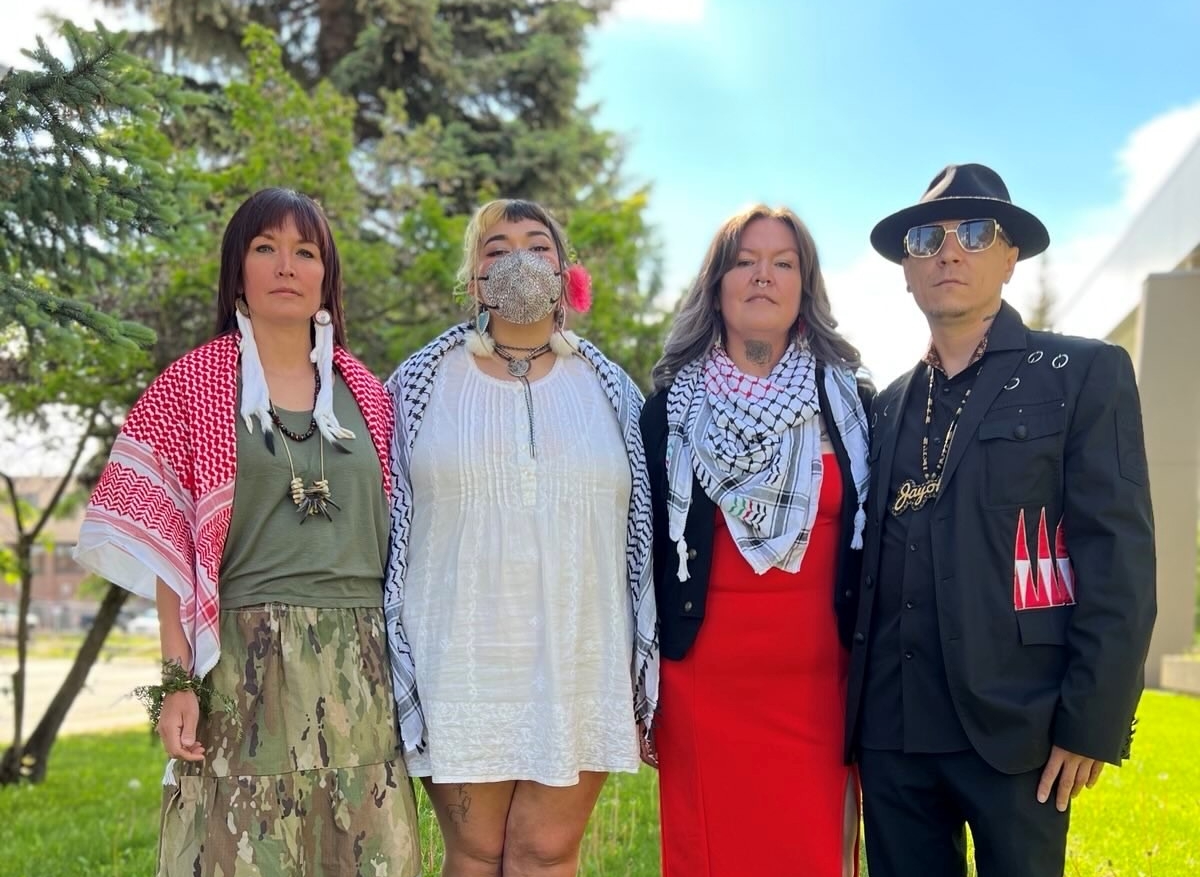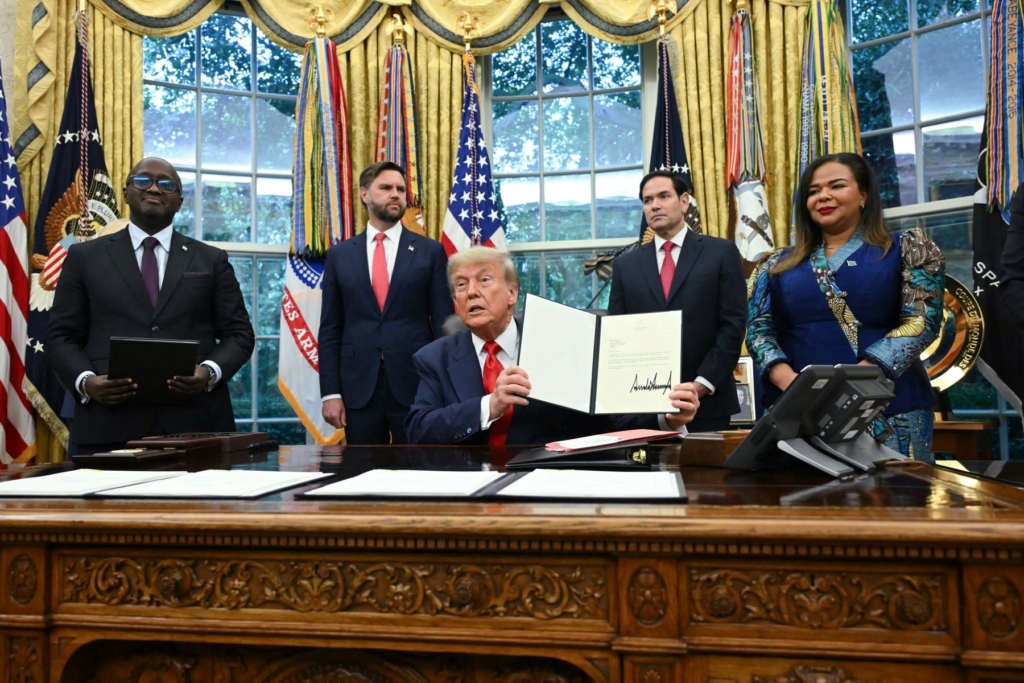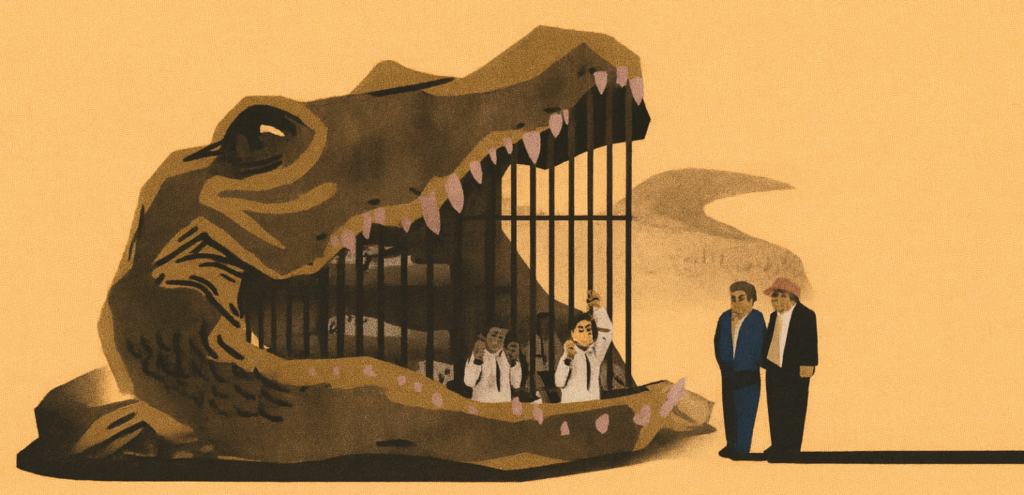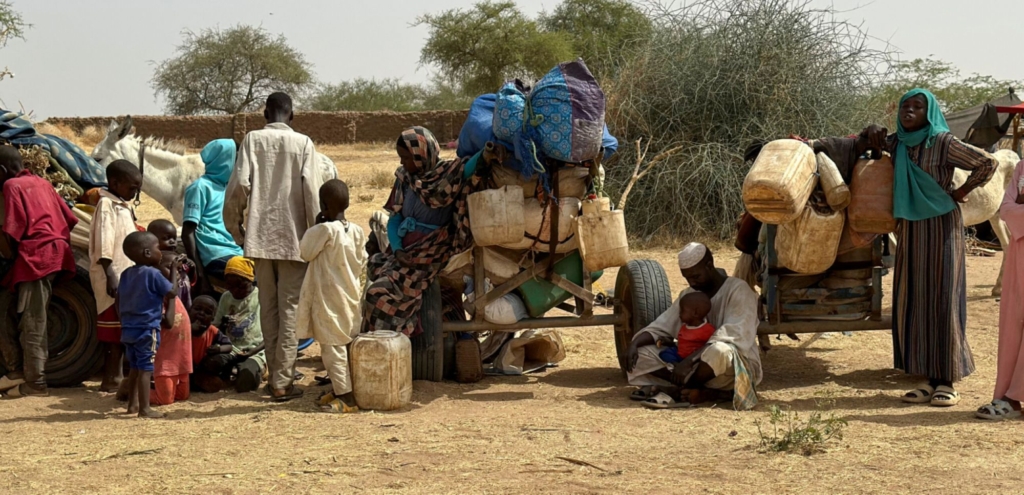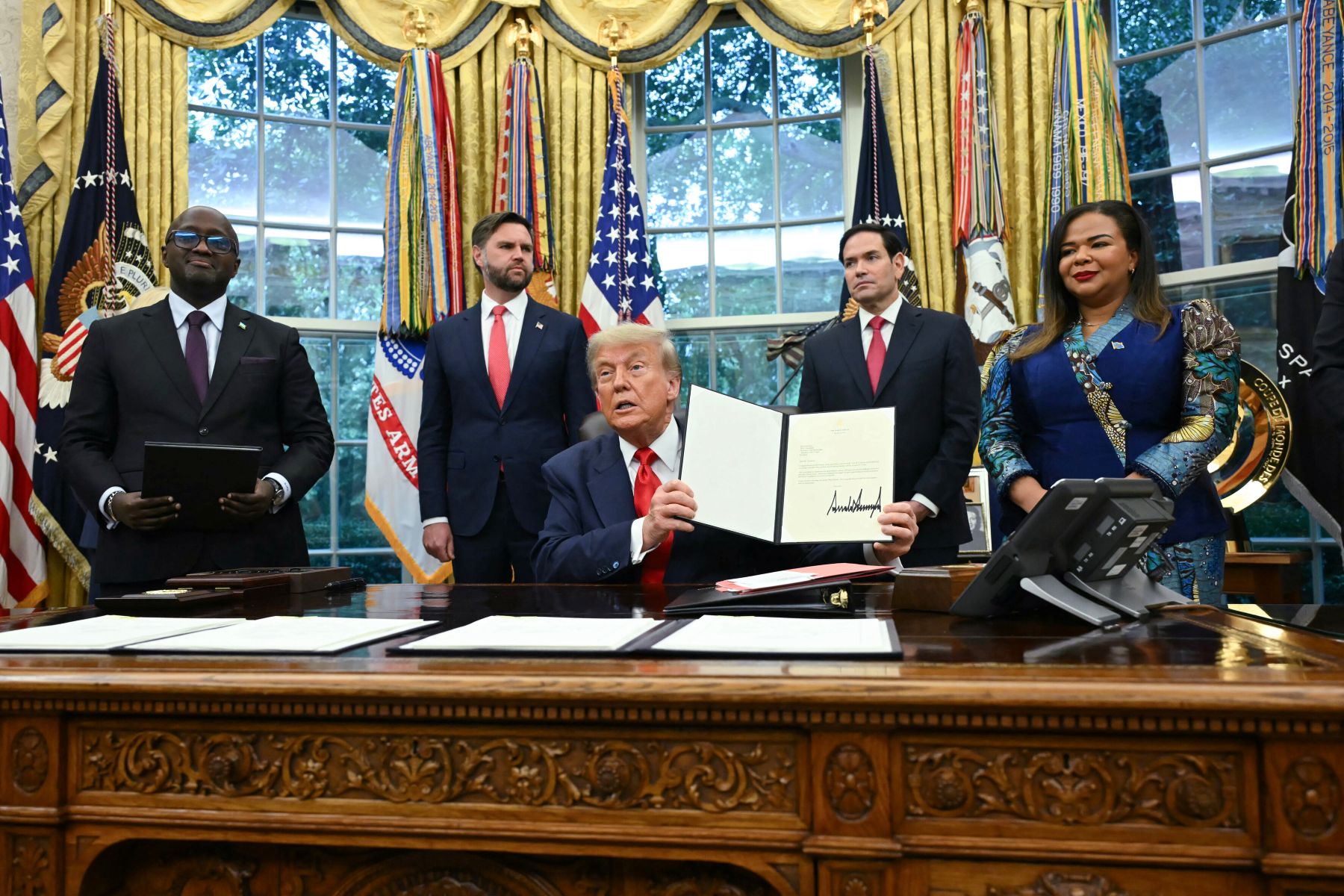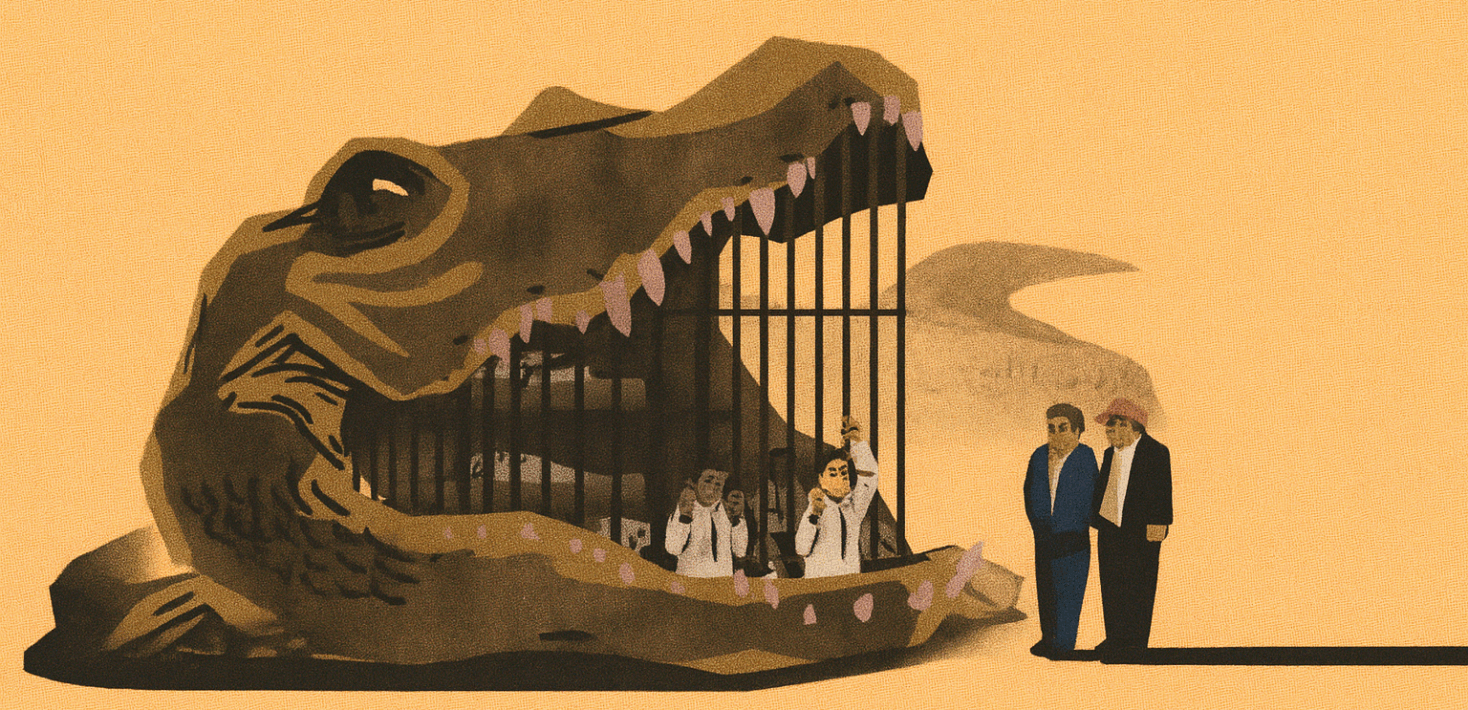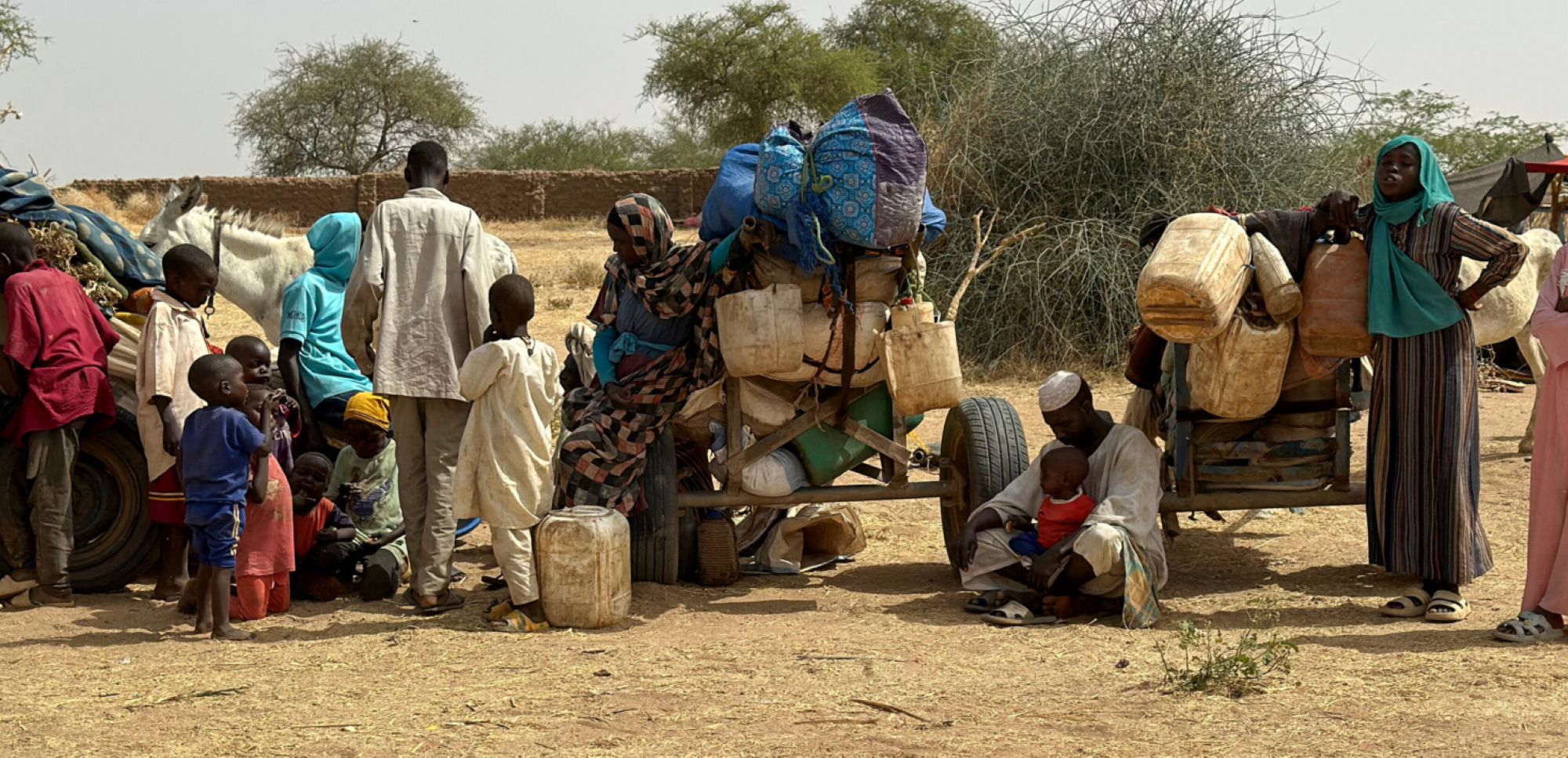Amnesty International, Peace Brigades International and Front Line Defenders will be closely monitoring the sentencing this week of Indigenous land defenders who have been criminalized by Canada for protecting unceded Wet’suwet’en Territory against the construction of a fossil-fuel pipeline.
A delegation of representatives from Amnesty International Canada’s English-speaking section, the organization’s Americas Regional Office, and the Canadian office of Peace Brigades International (PBI-Canada) will attend the hearings in Smithers, British Columbia in person. Front Line Defenders (FLD), an international human rights organization that protects human rights defenders at risk, will monitor the proceedings from abroad.
Starting on 15 October, a British Columbia judge will preside over the three-day sentencing hearing for Sleydo’ (Molly Wickham), a Wing Chief (Cas Yikh, or Grizzly Bear House) of the Gidimt’en Clan of the Wet’suwet’en Nation, Shaylynn Sampson, a Gitxsan with Wet’suwet’en family connections, and Corey “Jayohcee” Jocko, a Kanien’kehá:ka (Mohawk) from Akwesasne.
The defenders were arrested in November 2021 during a heavily militarized Royal Canadian Mounted Police (RCMP) raid on Wet’suwet’en Territory. Sleydo’, Sampson and Jocko were charged with, and later convicted of, defying a controversial B.C. court order forbidding land defence actions near the construction of the Coastal GasLink (CGL) liquefied natural gas pipeline.
Amnesty International’s research has concluded that the injunction order unduly restricts the human rights of the land defenders and the Indigenous rights of the Wet’suwet’en Nation. By extension, the arrests and prosecution of the land defenders represent a serious violation of their rights.
“We are proud to return to Smithers – on the unceded traditional territory of the Wet’suweten Nation – to express our solidarity with Sleydo’, Shaylynn Sampson and Corey Jocko, who have been unfairly criminalized by Canada for exercising their rights,” said Erin Riley-Oettl, Manager of Human Rights Law, Campaigns and Advocacy for Amnesty International Canada’s English-speaking section. “Amnesty International will not hesitate to designate these courageous defenders as prisoners of conscience if they are sentenced to jail or house arrest.”
“We are deeply concerned by the criminalization of these land and environmental defenders who were upholding ‘Anuk niwh’iten (Wet’suwet’en law) and protecting unceded territory from a destructive extractivist megaproject,” said Brent Patterson, the coordinator of PBI-Canada. “The surveillance, harassment, intimidation and offensive remarks made against them by the RCMP is disturbing. This must end. Any sentencing involving either jail time or house arrest would be unjust and unwarranted.”
“The case of the Wet’suwet’en land defenders adds to an alarming pattern of criminalisation of Indigenous defenders in the Americas and sets a dangerous precedent for land defence in Canada,” said Sandra Patargo, Protection Coordinator for North America, Central America and the Caribbean at Front Line Defenders. “Ensuring protection and justice for defenders of Wet’suwet’en land is an obligation of the Canadian government and an international responsibility in a context where Indigenous defenders are leading the global struggle for the defence of Indigenous rights and the environment. Front Line Defenders will continue to accompany Sleydo’, Shaylynn Sampson and Corey Jocko until they can continue to defend their territory in freedom.”
Compounding violations of Indigenous rights
Construction of the 670-kilometre CGL pipeline project through Wet’suwet’en territory proceeded without the free, prior and informed consent of the Wet’suwet’en Hereditary Chiefs, whom the Supreme Court of Canada has recognized as the ancestral authority of the Nation. (According to the Supreme Court’s Delgamuukw decision (1997), their rights and title were never extinguished.) This represents a violation of the UN Declaration on the Rights of Indigenous Rights (UNDRIP), which holds that major infrastructure or resource-extraction projects must not go ahead unless they have received the free, prior and informed consent of the Indigenous Nations whose territories are affected by the development. Canada has endorsed UNDRIP and, in 2021, adopted it into federal law.
Moreover, rights violations continue to compound as Canada, B.C. and the international business consortium behind the CGL pipeline advance Phase II of the project. Aimed at doubling the output of the LNG export facility in Kitimat, B.C., Phase II would see seven new compressor stations built along the CGL pipeline route, including two on Wet’suwet’en Territory – again without the free, prior and informed consent of the Wet’suwet’en Hereditary Chiefs.
“Convicting Sleydo’, Shaylynn, and Corey for upholding Wet’suwet’en law and defending our territory is outrageous,” said Chief Na’Moks, of the Wet’suwet’en Nation’s Tsayu Clan. “With Canada and B.C. attacking Indigenous people for exercising their rights, stream-rolling destructive pipeline infrastructure through our territory, destroying our homes, and threatening our traditional ways of life, why aren’t they being treated like criminals or charged with a crime?
“Time after time, Canada keeps privileging the interests of wealthy investors and giant corporations over the lives and rights of Indigenous Peoples and the natural environment that everyone – not just Indigenous Peoples – depend on. How can the Canadian state claim to champion human rights, let alone reconciliation, when it physically assaults and criminalizes Indigenous defenders speaking out for justice?”
“The chicanery is obvious on the part of the B.C. government and industry,” said Gidemt’en Clan Chief Woos. “The Wet’suwet’en people have always maintained their sovereignty over the 22,000 square kilometres of territorial lands.”
Despite a B.C. judge’s decision to convict Sleydo’, Sampson and Jocko of contempt of court, he did acknowledge that their rights had been infringed during their arrests. In response to an abuse-of-process claim filed by the defenders’ legal team, the judge ruled in February that the conduct, including anti-Indigenous racist statements, of some RCMP members during the November 2021 raid did indeed violate the Canadian Charter of Rights and Freedoms. The ruling validates both the experiences of these land defenders and the broader experience of colonial violence that Indigenous Peoples have faced for more than 100 years from the RCMP. However, the judge refused to stay all charges against the defenders and said he would instead consider reduced sentences.
Canada at risk of new prisoner-of-conscience declaration
Amnesty International is prepared to declare Sleydo’, Sampson or Jocko a prisoner of conscience in the event the court sentences one or more of them to jail or house arrest. If that comes to pass, it would be only the second time that Amnesty has applied a prisoner-of-conscience declaration to a person held by Canada.
In July 2024, Chief Dsta’hyl, a Wing Chief (Likhts’amisyu Clan) of the Wet’suwet’en Nation, became the first person held by Canada to be declared a prisoner of conscience by Amnesty International. At the time, the 68-year-old land defender was serving a 60-day house arrest sentence after he was convicted of contempt of court for allegedly violating the B.C. court injunction. RCMP officers arrested Chief Dsta’hyl in October 2021 during a blockade of the Morice Forest Service Road aimed at halting the construction of the CGL pipeline through Wet’suwet’en Territory.
On the cusp of his release from house arrest in September 2024, Chief Dsta’hyl thanked well-wishers worldwide and urged them to keep the pressure on Canada to respect the rights of the Wet’suwet’en Nation.
“The federal government and the province have the power to issue a declaration recognizing our ownership of our 22,000 square kilometres of territory,” he said in a written statement. “Their unwillingness to do it is beyond me. They went as far as signing the United Nations Declaration on the Rights of Indigenous Peoples and making other promises, but those are smokescreens to appease the population. They haven’t followed through on their word. This is where people can put pressure on the government and force them into finally recognizing our rights.”












